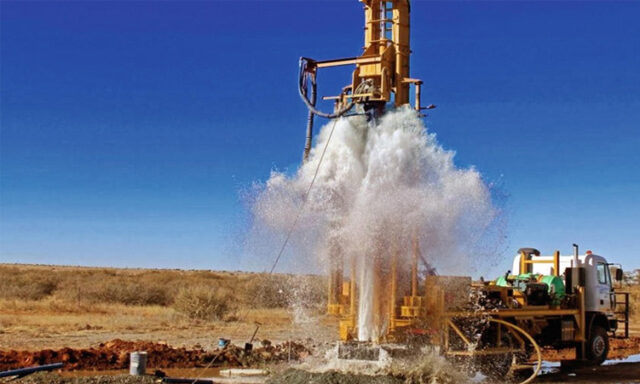The Cabinet has ordered that a task force collecting water samples from boreholes in the Stampriet Aquifer should be set up.
This was said by the Namibia Agricultural Union (NAU) in its latest newsletter after it received enquiries from producers who have been contacted by government officials wanting to collect samples from their properties.
“The Cabinet instructed the relevant ministries to collect water samples in the affected potential new mining area to determine water quality,” the newsletter says.
The task force was supposed to be set up by officials from the Ministry of Agriculture, Water and Land Reform, the Ministry of Environment, Forestry and Tourism, the Ministry of Mines and Energy, and the Ministry of Health and Social Services, the NAU says.
The task force would have to collect groundwater samples in the Stampriet Transboundary Aquifer System (Stas), which is roughly located in the Hardap region extending to the southern part of Omaheke region and south-eastern part of Khomas region.
According to the union, this effort determines the uranium background from Stas-wide concentrations and collects groundwater samples for radionuclide analysis at a total of 30 strategically located monitoring and production boreholes.
“The main objective of the extended groundwater sampling campaign is to determine, on a regional scale, values of radionuclides, stable isotopes, major ions and trace elements/metals in groundwater throughout the Stampriet Artesian Basin (SAB) and also to determine zones, with reasonable accuracy, where the uranium limits for safe drinking water may have been exceeded,” the newsletter says.
The campaign was expected to take place from 18 to 24 November, according to the NAU.
The Stampriet Aquifer Uranium Mining Association (Sauma), an association of farmers and businesses including lodge and tourism stakeholders who are affiliated to NAU, is strongly opposed to the proposed in-situ leach mining of uranium in the area by Russian company Uranium One.
They allegedly fear that this mining method will contaminate their only source of top-rate drinking water.
This was highlighted by Sauma chairperson Divan Opperman at the association’s annual general meeting held at Leonardville in the Omaheke region on 13 November.
“The water source is all we have, and as a community we cannot afford to gamble with it,” he said.
Opperman stressed the necessity of obtaining factual, objective and scientifically based evidence that can provide accurate information both internationally and locally, especially to the government.
“This evidence will help to balance the perspectives presented by various stakeholders,” he said.








